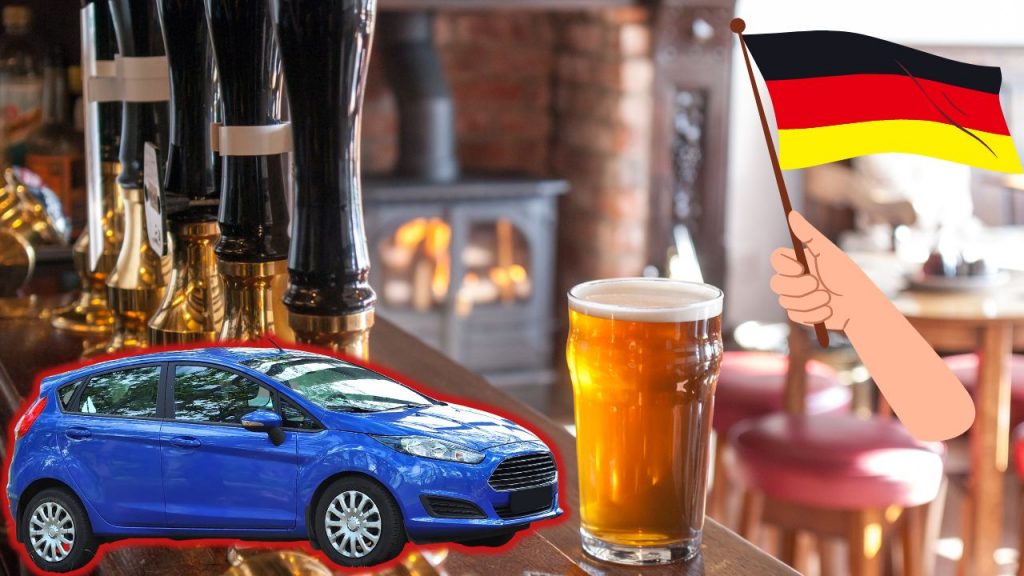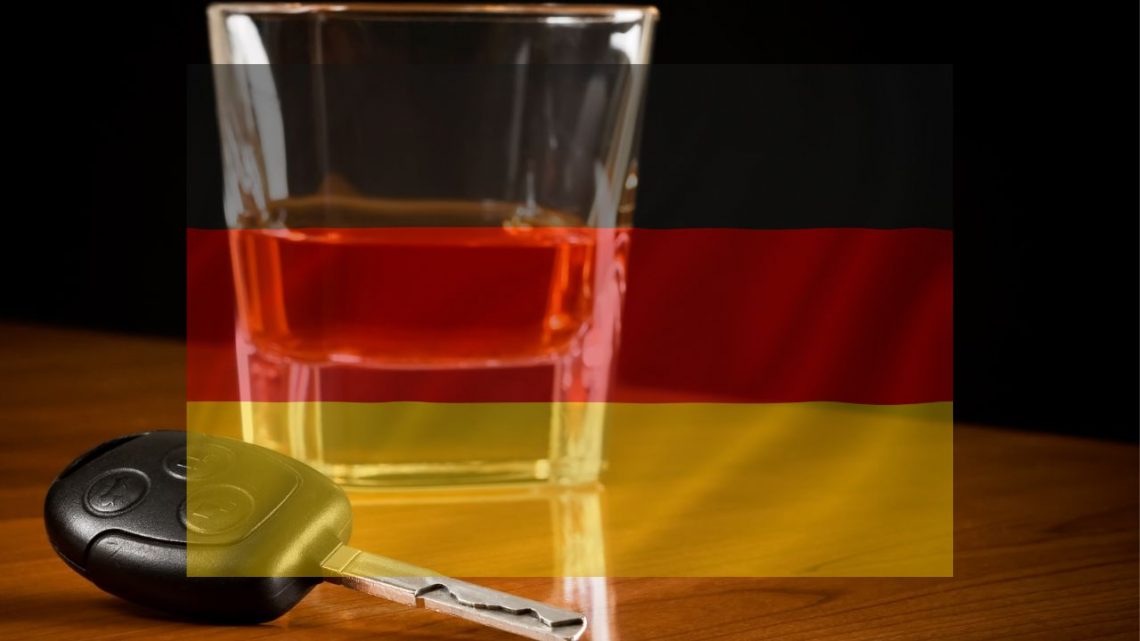In Germany, the maximum permissible blood alcohol concentration (BAC) for drivers is set at 0.05%, which corresponds to 50 milligrams of alcohol per 100 milliliters of blood.
This article aims to offer insight and increase understanding of the hazards of drunk driving in Germany. It’s important to note that this website does not endorse or approve drunk driving in any place or circumstance.
What is the legal alcohol limit for driving in Germany?
In Germany, the legal alcohol limits for driving are defined according to the driver’s category to ensure safety on the roads. These limits are established to minimize alcohol-related accidents and maintain traffic order. Below are the specific legal alcohol limits for different categories of drivers:
- Regular Drivers: The legal limit is 0.08% BAC (blood alcohol concentration), equivalent to 80 milligrams of alcohol per 100 milliliters of blood.
- Novice Drivers: For drivers with less than two years of experience or under 21 years of age, the legal limit is 0.0% BAC, enforcing a strict no-alcohol policy.
- Professional Drivers: This category includes bus, taxi, and commercial vehicle drivers, for whom the legal limit is also set at 0.0% BAC, requiring complete abstinence from alcohol while driving.
Drink and Drive Penalties and Punishments in Germany
In Germany, driving under the influence of alcohol is taken very seriously, and the penalties for doing so can be severe. The German road traffic law outlines specific sanctions and penalties based on the blood alcohol concentration (BAC) level of the driver. It’s important for drivers to be aware of these regulations and to regularly check the official state website for any updates or changes to these laws.
Below is a summary of the sanctions and penalties according to the BAC level:
| BAC (g/l) | Fine | Driving Ban | Penalty Points |
|---|---|---|---|
| 0.5 – 1.09 g/l | €500 (€1000 for the second offence; €1500 for the third offence) | 1 month (3 months for second and third offence) | 2 |
| 1.1 g/l and above | Jail or large fine | Dependent on the BAC level and driving history | 3 |
| Non-respect of the zero-tolerance limit for novice and professional drivers | €250 | Extension of the probationary period for 2 additional years | 1 |
Enforcement
In Germany, alcohol testing is conducted only on living suspected drivers. In the event of a single vehicle collision where no one else has been injured, an alcohol test will not be performed. Enforcement of these laws is delegated to the federal state level, and therefore, detailed data on enforcement may vary by region and is not centrally available.
Rehabilitation and Alcohol Interlock Programmes
Currently, Germany does not have an Alcohol Interlock Rehabilitation Programme in place. Drivers found to be in violation of these alcohol limits may face the penalties as outlined without the option for rehabilitation through such programs.
Given the seriousness of drink-driving penalties and the potential for regulations to change, it is crucial for drivers in Germany to stay informed about the current laws. Regularly visiting the official state website will ensure that drivers are up-to-date with the latest information regarding drink and drive penalties and punishments in Germany.
How Can I Calculate if My Alcohol Blood Limit is Legal in Germany?
In Germany, the police use breathalyzers and blood tests to determine a driver’s blood alcohol concentration (BAC) level. These methods are considered reliable and are used to enforce drink driving laws effectively. Understanding your own BAC level before getting behind the wheel is crucial to ensure you’re driving legally and safely.
As an experienced phlebologist with a decade of experience, I recommend two methods for checking your BAC level:
- Use a High-Quality Alcohol Breathalyzer: One of the most reliable breathalyzers on the market is the BACtrack S80, which is available in Germany. This device offers professional-grade accuracy and is DOT & NHTSA Approved as well as FDA 510(k) Cleared. It’s a valuable tool for anyone looking to measure their BAC accurately. I highly recommend keeping a BACtrack S80 in your car, as it can be a crucial tool in preventing impaired driving. Many people underestimate their BAC level, which can lead to unintentional impaired driving.
- Utilize My BAC Calculator: Together with a team of fellow phlebologists and web developers, I’ve created an online BAC calculator. This tool has been designed based on our extensive knowledge and experience in the field. While it’s a helpful resource for estimating your BAC, please remember that it’s not 100% accurate. However, it can provide a good indication of whether you’re over the 0.05% limit, which is especially useful in making responsible decisions regarding driving.
Important Consideration
Both the high-quality alcohol breathalyzer and the BAC calculator are valuable tools for estimating your alcohol levels. However, it’s important to remember that they do not provide 100% accurate results. Factors such as individual metabolism, the type of alcohol consumed, and recent meals can affect BAC readings. These tools should be used as a guide to help you make informed decisions about driving after consuming alcohol.
Ultimately, the safest approach is to avoid driving if you’ve consumed any amount of alcohol, especially if you’re unsure about your BAC level. This precautionary measure is the best way to ensure your safety and that of others on the road.
Ways to Avoid Driving with a High BAC in Germany

Driving with a high Blood Alcohol Concentration (BAC) is not only illegal but also poses a significant risk to yourself and others on the road. Fortunately, there are several convenient alternatives to driving under the influence in Germany that can help you get home safely without risking a DUI charge.
- Use Taxi or Ride-Sharing Apps: One of the easiest and most convenient ways to avoid driving after drinking is to use taxi services or ride-sharing apps like Uber. These services offer a safe and reliable means of transportation at any hour. For local taxi services, consider options such as:
- In Berlin: Taxi4Berlin – Taxi Berlin Serkan Demir offers reliable service throughout the city.
- In Hamburg: For a traditional taxi service, you can rely on companies like Grossraumtaxi Wefels, which caters to groups needing more space.
- Order a Designated Driver Service: If you’ve driven to a location and prefer not to leave your car overnight, a designated driver service is a perfect solution. These services send a driver to take you and your car home safely. Some reputable options include:
- In Berlin: MyChauffeur Bus & Limousinenservice GmbH offers professional drivers who can safely drive you and your car home.
- In Hamburg: Driversline | Chauffeurservice Hamburg provides a similar service, ensuring you and your vehicle get home without incident.
To find a designated driver service in your city, a simple Google search for “designated driver service” along with your city name will yield several options. Utilizing these services not only keeps you legal but also contributes to the overall safety of our roads.
Sticking to Drink and Drive Laws in Germany: Sad Statistics
In 2020, Germany saw a significant reduction in road fatalities, with a 10.7% decrease from the previous year, amounting to 2,719 deaths. Alcohol played a role in approximately 4.9% of injury crashes and 5.8% of fatal crashes, underscoring the ongoing issue of drunk driving despite a consistent decline in such incidents. The introduction of the 2021-2030 Road Safety Programme aims to further reduce fatalities and serious injuries by 40% by 2030, highlighting the nation’s commitment to enhancing road safety.
Driving under the influence remains a critical concern, with intoxication greatly impairing driver judgment and vehicle control. It’s imperative for drivers to acknowledge the risks associated with drunk driving and to utilize alternatives such as taxis or designated driver services when necessary. Ensuring one’s BAC is within legal limits before driving is essential, with the use of alcohol breathalyzers being a reliable method for assessment.
For the latest guidelines and information on preventing drunk driving, visiting the official website of the European Transport Safety Council (ETSC) is recommended. This proactive approach towards understanding and complying with drunk driving laws not only ensures personal safety but also contributes to the broader goal of road safety in Germany.







